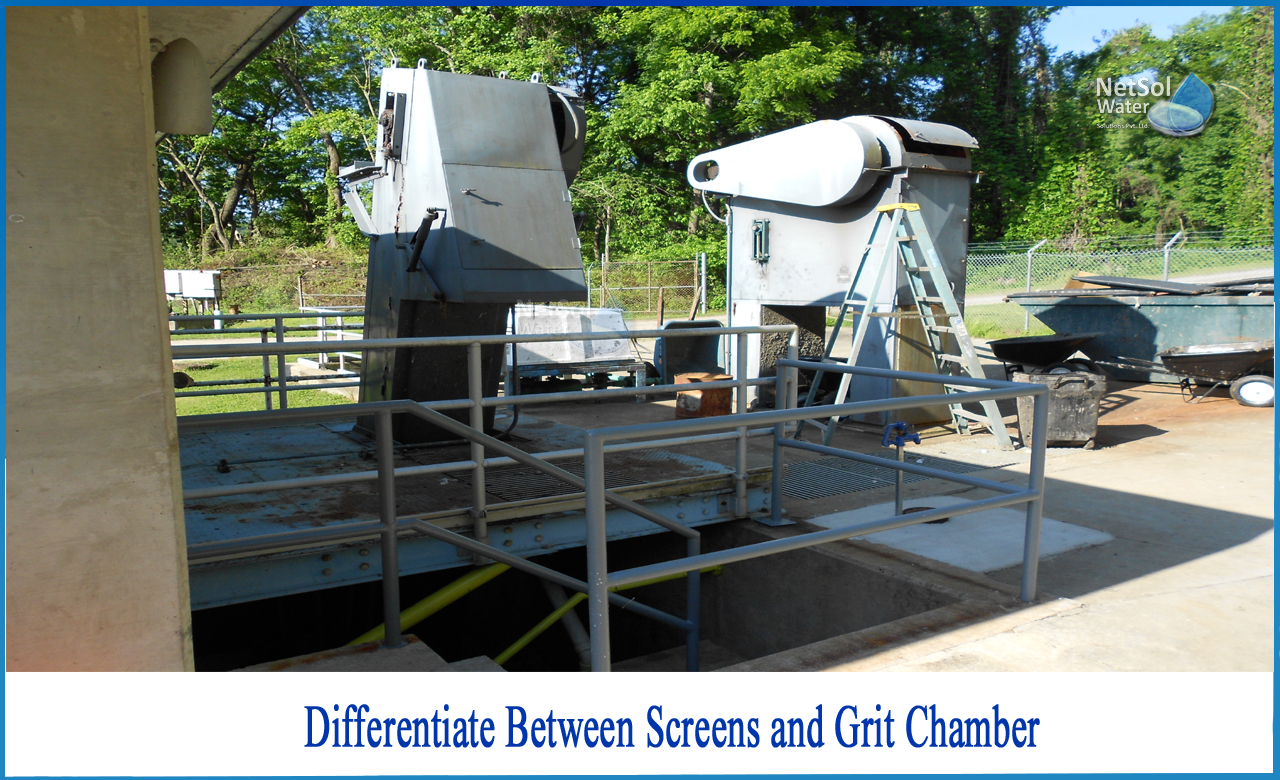What is the Differentiate between Screens and Grit Chamber?
Large particles and grit in wastewater can hinder treatment operations or cause wastewater treatment equipment to wear out prematurely. To prevent any difficulties, these goods must be handled individually. During preliminary treatment, these components are removed from the influent wastewater. The preparatory treatment includes screening, grit removal, septage management, smell control, and flow equalization.
Individuals will be clearly distinguished by the following different definitions:
Screening
Screening is the initial unit operation of wastewater treatment plants (WWTPs). It removes rags, paper, plastics, and metals from downstream equipment, pipelines, and appurtenances to prevent damage and obstruction. In certain modern wastewater treatment systems, coarse and fine screens are employed.
Screening mechanisms, such as basket-style waste racks, have been installed into certain plants and are manually hoisted and cleaned. Because screenings are raked using a mechanical device rather than by facility staff, mechanically cleaned screens often need less labour to operate than manually cleaned screens. The rake teeth of mechanically cleaned screens, on the other hand, must be examined on a regular basis due to their proneness to breaking and bending. To avoid fouling by grit and rags, drive mechanisms must be examined on a regular basis.
Coarse Screens
Heavy particles, rags, and rubbish are filtered from wastewater using coarse screens, which have openings of 6 mm (0.25 in) or larger. Bar screens that have been mechanically and manually cleaned, as well as rubbish racks, are instances of coarse cleaning.
Fine screens
Fine screens are frequently used to remove particles that might create problems in downstream processes, particularly in systems without initial treatment. The apertures of fine screens generally range from 1.5 to 6 mm (0.06 to 0.25 in). Very fine screens with apertures of 0.2 to 1.5 mm (0.01 to 0.06 in) can reduce suspended particles to levels comparable to those generated by primary clarifying after coarse or fine screens.
Grit Removal
Grit may be defined as sand, gravel, cinder, or other heavy solid materials with a higher specific gravity than the organic biodegradable particles in wastewater. It can be found in eggshells, bone chips, seeds, coffee grounds, and large organic particles like food waste.
Grit removal prevents mechanical equipment friction and wear, grit building in anaerobic digesters and aeration basins, and grit deposition in pipelines and channels. After primary clarity and before screening and comminution, grit removal plants are widely utilized. Large particles are kept out of the path of grit handling equipment in this manner. In secondary treatment facilities lacking primary clarity, grit removal should happen before aeration.
What are the Grit Removal methods?
Grit removal methods include aerated grit chambers, vortex-type (paddle or jet induced vortex) systems, detritus tanks (short-term sedimentation basins), horizontal flow grit chambers (velocity-controlled channel), and hydrocyclones (cyclonic inertial separation). Several factors must be addressed when selecting a grit removal technique, including the amount and characteristics of the grit, potential downstream process unfavourable effects, head loss requirements, space requirements, removal efficiency, organic content, and cost. The grit removal technology used for a certain facility should best balance these various issues.
When selecting a grit removal approach, the quantity and qualities of the grit, as well as the likelihood of downstream processes being affected, are all important aspects to consider, including headloss requirements, space requirements, removal efficiency, organic content, and economics.
Feel free to contact Netsol Water Solutions with any queries you may have about custom-designing and manufacturing water or wastewater treatment systems. Contact us at 919650608473 or contact via email at enquiry@netsolwater.com for additional information.
You may also schedule a conversation with an engineer or obtain an estimate by visiting our website. We can guide you through the process of determining the best solution and realistic pricing for your wastewater treatment system requirements.



